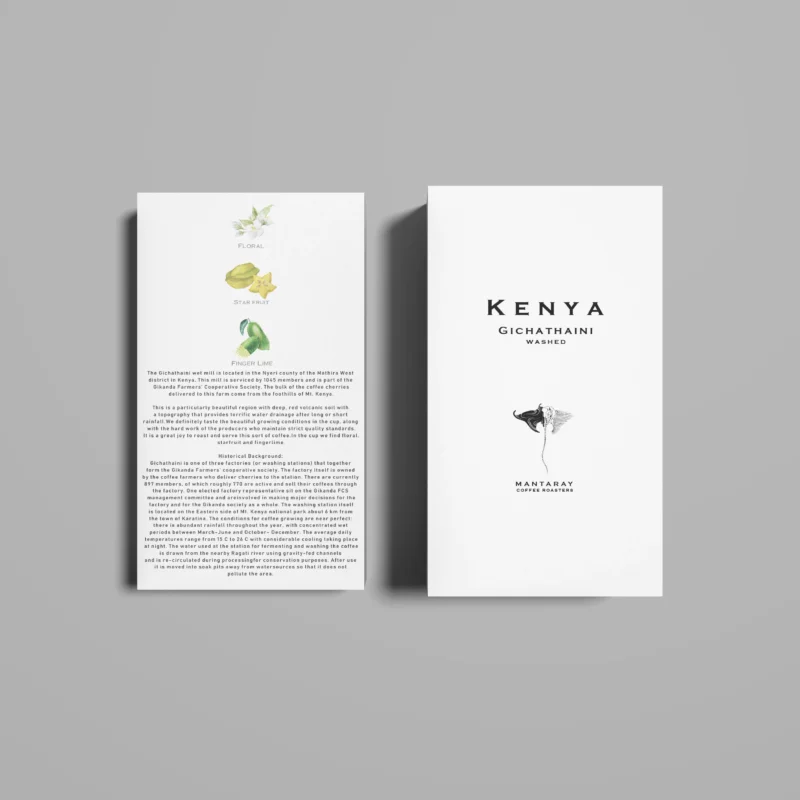
About this Coffee
ABOUT THIS SINGLE ORIGIN
Kenya Gichathaini Washed
ROAST: Filter Roast
PROCESS: Washed
REGION: Nyeri country, Mathira west district
ELEVATION: 1600-1900
VARIETAL: SL28,SL34, Ruiru 11 & Batian
CUP: Floral, Star fruit, Finger lime
The Gichathaini wet mill is located in the Nyeri county of the Mathira West district in Kenya. This mill is serviced by 1045 members and is part of the Gikanda Farmers’ Cooperative Society. The bulk of the coffee cherries delivered to this farm come from the foothills of Mt. Kenya.
This is a particularly beautiful region with deep, red volcanic soil with a topography that provides terrific water drainage after long or short rainfall. We definitely taste the beautiful growing conditions in the cup, along with the hard work of the producers who maintain strict quality standards. It is a great joy to roast and serve this sort of coffee.
In the cup we find floral, starfruit and fingerlime.
Historical Background:
Gichathaini is one of three factories (or washing stations) that together form the Gikanda Farmers’ cooperative society. The factory itself is owned by the coffee farmers who deliver cherries to the station. There are currently 897 members, of which roughly 770 are active and sell their coffees through the factory. One elected factory representative sit on the Gikanda FCS management committee and are involved in making major decisions for the factory and for the Gikanda society as a whole. The washing station itself is located on the Eastern side of Mt. Kenya national park about 6 km from the town of Karatina. The conditions for coffee growing are near perfect: there is abundant rainfall throughout the year, with concentrated wet periods between March-June and October- December. The average daily temperatures range from 15 C to 26 C with considerable cooling taking place at night. The water used at the station for fermenting and washing the coffee is drawn from the nearby Ragati river using gravity-fed channels and is re-circulated during processing for conservation purposes. After use it is moved into soak pits away from water sources so that it does not pollute the area.